Speaker
Description
Background: The human deficiency virus (HIV) remains a devastating public health threat, affecting 39 million people globally, with approximately 60% of these cases occurring in Sub-Saharan Africa. Early detection and diagnosis of HIV are crucial for preventing the further spread of the virus, making HIV testing a pivotal tool for achieving the UNAIDS goal of ending AIDS by 2030. The World Health Organization and UNAIDS have emphasized the importance of adopting innovative testing strategies, such as those involving machine learning. Machine learning can accurately predict high-risk individuals and facilitate more effective and efficient testing methods compared to traditional approaches. Despite this advancement, there exists a knowledge gap regarding the extent to which machine learning techniques are integrated into HIV testing strategies worldwide. To address this gap, this study aimed to analyze published studies that applied machine learning to HIV from 2000 to 2024.
Methods: This study utilized a bibliometric approach to analyze studies that were focused on the use of machine learning in HIV testing. Relevant studies were captured through the Web of Science database using synonymous keywords. The bibliometrics package in R was used to analyze the characteristics, citation patterns, and contents of 3962 articles, while VOSviewer was used to conduct network violations. The analysis focused on the yearly growth rate, citation analysis, keywords, institutions, countries, authorship, and collaboration patterns.
Results: The analysis revealed a scientific annual growth rate of 8.8% with an international co-authorship of 44.7% and an average citation of 23.16 per document. The most relevant sources were from high-impact journals such as PLOS ONE, Aids and Behavior, Journal of Acquired Immune Deficiency Syndrome, Journal of International Aids Society, AIDs, and BMC Public Health. The USA, The United Kingdom, South Africa, China, and Canada produce the highest number of contributions. The results show that the University of California, Johns Hopkins University, Harvard University, and the University of London have the highest collaboration networks.
Conclusion: This study identifies trends and hotspots of machine learning research related to HIV testing across various countries, institutions, journals, and authors. These insights are crucial for future researchers to understand the dynamics of research outputs in this field.

